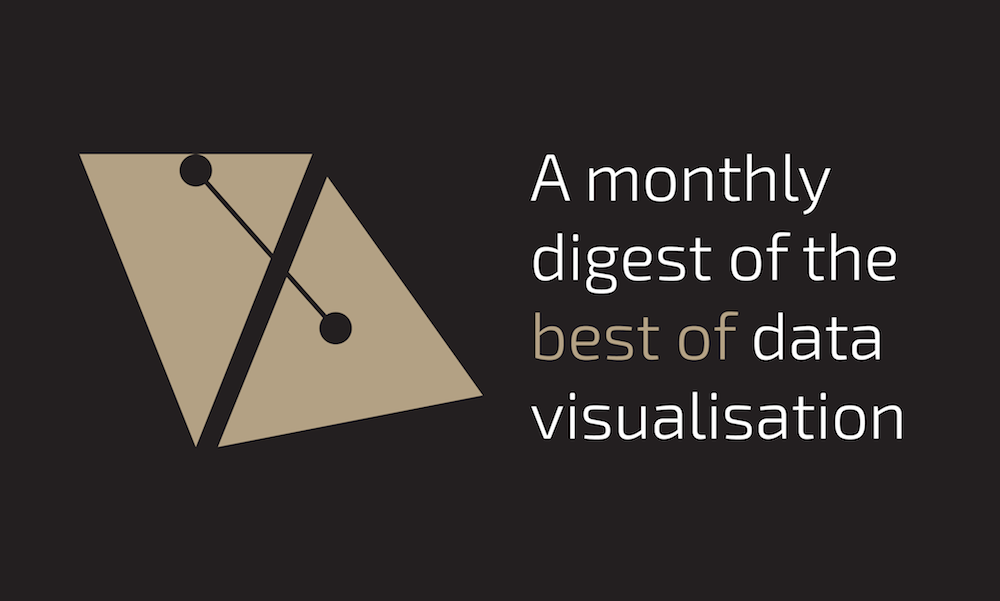At the end of each month I pull together a collection of links to some of the most relevant, interesting and useful articles I’ve come across. If you follow me on Twitter you will see these items tweeted as soon as I find them. Here’s the latest collection from June 2010:
Online Journalism Review (from May 2007) | An interview with Alberto Cairo, El Mundo’s former infographics expert, about his (then) upcoming book on visual journalism | Link
Smashing Magazine | Interesting background behind the design of a “World Of Programming” Infographic | Link
If It Was My Home | Visualisation which plots the spill area of the BP Oil Disaster over your chosen location, helping to contextualise the extent of this disaster | Link
Juice Analytics | Summary page of Juice’s excellent ’30 days to context connection’ series about the world of visualisation | Link
The Guardian | From the Guardian’s News & Media Sustainability Report 2010 – “our data journalism is opening up a world of information” | Link
The Guardian (from Oct 2009) | Portugal’s new paper points to print’s future | Link
Online Journalism Blog | Video with Olympics Reporter Ollie Williams to find out what the BBC are planning for 2012 | Link
Perceptual Edge | Business Intelligence Industry – Get to Know Your Real Customers | Link
blprnt.blg (from Apr 2010) | Your Random Numbers – getting Started with Processing and Data Visualization | Link
Logo My Way | Logo redesign challenge for BP in light of the oil disaster | Link
Online Journalism Blog | Alternative critique of The Guardian’s crusade for liberating access to all data, looking at the economics of data in the news environment | Link
Haha.nu | Good Magazine | There’s been a few lows recently in terms of bad design, here are a couple more to digest | Example 1 and Example 2
The Guardian | Why Minority Report was spot on | Link
Data Mining | Visualizing wireless signals in Augmented Reality | Link
Visuale | 8 simple rules on brainstorming around a visualization design | Link
Smashing Magazine | Applying Interior Design principles to the web | Link
Eager Eyes | Article reflecting on the demise of the visualisation website ‘Verifiable’ | Link
Wired | Article to launch the availability of UK tube data – ‘Live Tube map shows the power of TfL’s data’ | Link
Infosthetics | Recreating Minard’s Napoleon graph using modern day tools: Swivel, Tableau and Many Eyes | Link
Infosthetics | Interview with Karim Rashid about Information Aesthetics in Industrial Design| Link
New York times | The New York Times visualisation which tracks the extent and spread of the Gulf of Mexico oil spill | Link
Core77 | Don Norman’s article about design thinking being a useful myth | Link
CBS Money Watch | The 10 hottest careers in the US| Link
Kickstarter | A new way to fund and follow creativity | Link
Moritz Stefaner | Open source release of Moritz Stefaner’s brilliant Elastic Lists code | Link
Design Mind | How designers are introducing the idea of “simple” to a group of high school students | Link
Perceptual Edge | ‘Circle lust continues’ – article bemoaning the ongoing love affair some visualisation designers have with the use of the circle | Link
Infosthetics | Interview with Nicholas Felton from feltron.com | Link
Eager Eyes | Caroline Ziemkiewicz and Robert Kosara’s paper on ‘Implied Dynamics in Information Visualization’ | Link
Infosthetics | Social Visualization Software Review: Tableau Public | Link
Juice Analytics | Can familiarity trump usability? | Link
Infographics News | Three infographics and 200 years of Argentinian history | Link
Infographics News | Four visual communicators give advice on infographics | Link
Flowing Data | Review of the book Data Flow 2 | Link
Infosthetics | What is the best arrow representation in visualisations? | Link
Flowing Data | Ridiculous but good fun, a Twitter parade in your honour | Link
Flowing Data | Turning information into action – 10 Tactics| Link
Smashing Magazine | Why design-by-committee should die | Link
O’Reilly Radar | Data is not binary: Why open data requires credibility and transparency | Link

